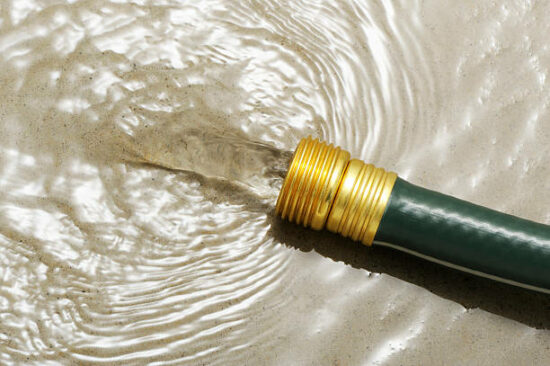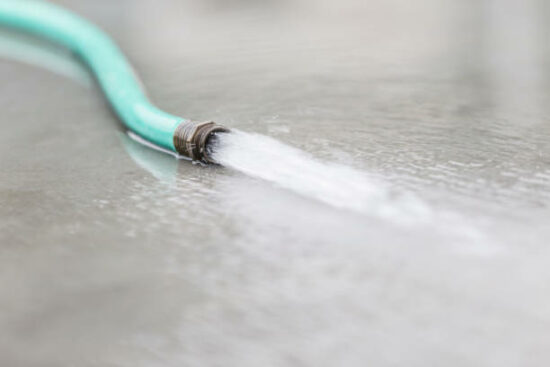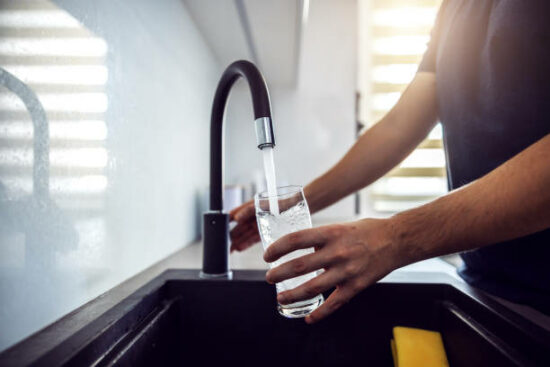Do you ever wonder why your tap water tastes like hose water? Many people experience this, and while the taste can be unpleasant, it is not necessarily a sign that something is wrong. In this blog post, we will discuss some of the common causes why your tap water may have an unpleasant taste and smell.
There are just a few causes of hose water flavor in tap water. If you keep your garden hose under pressure, the water may flow back and forth throughout the day as the pressure varies. The water then absorbs the plasticizer’s flavor from the PVC material in the hose, giving it a plastic-like flavor. Corrosion of the plastic plumbing in the home is another potential cause of tap water tasting like hose water.

Another reason can be that your town uses water from a lake or river with high mineral content. Some people refer to the water that these minerals might impart as “hose water” because of its peculiar flavor.
How do you get the hose taste out of water?

Here are some straightforward filtering techniques you can use to cope with the unpleasant taste of your tap water.
Install a whole-home water filtration system
Installing a whole-home water filtration system is the simplest way to improve your water’s taste. Thus, in addition to having safe water for cooking and drinking, you will also have purified water for improved skin and hair and other advantages like less appliance wear. All of the house’s faucets, pipes, and showerheads are filtered and treated by these systems.
Depending on the particular demands of the home, these systems come with a range of filters, including sediment filters, carbon filters, and even activated coconut shell carbon filters. These filter systems not only enhance the taste of the water but also get rid of dangerous chemicals and other impurities from the tap water.
Use a water pitcher filter.
A water pitcher filter can be used if money is short. Water pitcher filters are excellent at removing excess chlorine and other chemical impurities from water. Additionally, they would aid in clearing the water of any plastic-like tastes and smells. Water pitchers are a good solution for small households, but they have certain limitations for large households.
Install an under-sink filtration system
A whole-house filter is more expensive, but an under-sink water filter will still perform a fantastic job of purifying your water. The filter will only filter the water for the faucet to which it is attached. The water is filtered before it reaches the faucet by an under-sink filtration system that is put beneath the sink.
As a result, your water flow rate may be quickly hampered if you don’t install a proper system. Additionally, the water may become polluted before it reaches your glass if your faucet is constructed of poor-quality material.
Are hose water and tap water the same?

Hose water is often the same as tap water. The same subsurface pipes carry the water from your tap or hose to your house.
In other words, if you obtain your water from a public water source, it has been treated and will likely contain fluoride and chlorine to make it safe for drinking and to aid our teeth and bones stay healthy.
Despite this, water from hoses and taps may still have a high mineral content and could contain other heavy metals, such as copper or lead, when it passes through rusted pipes or lead fittings.
Additionally, chemical substances from the PVC pipe that seep into the water, especially when it is old or exposed to sunlight, may also be present in garden hose water.
Is there chlorine in the hose water?
Chlorine will be present in hose water, just like in your home’s internal tap water.
Chlorine and chloramines eliminate potentially hazardous bacteria from water and make it safe to drink.
Heavy metals like lead, iron, and copper are added to the water due to rusting copper pipes, which are brought on by high chlorine levels. These can interact with chemicals in the hose to create a variety of harmful chemical substances.
The use of chlorinated water in gardens is not recommended. Along with killing helpful bacteria, chlorine also converts to chloride in the soil, which plants subsequently take up.
Plants that consume chloride could grow more slowly and have burnt leaves.
Conclusion
Even while it could be alluring to drink from the garden hose, you should probably resist the urge unless you have a hose water filter installed and are using the proper hose. Going inside your home and fetching a glass of filtered water is best because drinking hose water exposes you to major health risks.

Jay
Jay is a health and wellness enthusiast with expertise in water quality and nutrition. As a knowledgeable advocate for holistic well-being, Jay successfully manages Type 2 Diabetes through informed lifestyle choices. Committed to sharing reliable and authoritative insights, Jay combines firsthand experience with a passion for enhancing health."
